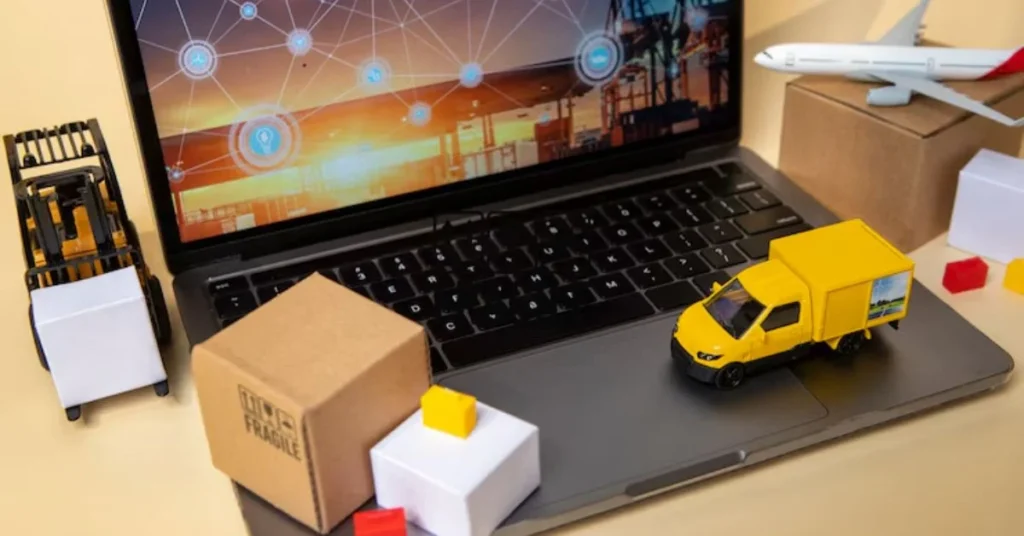In a world where supply chains are as visible as they are vulnerable, logistics is no longer a backstage operation. It’s a strategic engine. Among the many players in this increasingly scrutinized industry, Orbitline Freight Logistics has emerged as a force of quiet innovation—redefining how goods move, how companies adapt, and how sustainability meets scalability.
As the global economy in 2025 recovers from pandemic aftershocks, climate pressures, and geopolitical re-alignments, Orbitline Freight Logistics is navigating a complex map. Not with brute force or volume, but with foresight, technological integration, and an evolving understanding of what the next era of freight demands.
This article dives deep into the model, mission, and mechanisms of Orbitline Freight Logistics, reflecting the balanced, investigative tone of The New York Times while offering an unvarnished look into how this company is changing freight.
The Company at a Glance
Orbitline Freight Logistics is a global shipping and supply chain management company specializing in multi-modal logistics, customs clearance, inventory control, and trade compliance services. Headquartered in Rotterdam, with regional offices in Dubai, Singapore, Lagos, and New York, Orbitline’s strategic footprint allows it to coordinate freight operations across more than 80 countries.
Founded in 2013 as a modest port-based cargo handler, the company evolved rapidly into a technology-centric logistics firm focused on predictability, transparency, and sustainable shipping. Orbitline’s client portfolio includes manufacturers, e-commerce platforms, humanitarian organizations, and energy providers.
What Sets Orbitline Apart
The logistics industry is often dominated by legacy giants and fragmented local players. Orbitline has carved out a niche in between—offering enterprise-grade logistics without the bureaucratic drag. Three main pillars define its strategy:
1. Predictive Logistics Infrastructure
Orbitline leverages AI to offer predictive logistics—an evolution from reactive shipment tracking to forward-looking planning. This includes:
- AI-driven route planning based on weather, geopolitical risk, and traffic data.
- Machine learning models that predict customs delays by port.
- Inventory optimization that advises clients when and where to hold buffer stock.
This technology-first model makes Orbitline especially appealing to industries where every hour of delay costs millions—like automotive, pharmaceuticals, and fast fashion.
2. Sustainability-First Shipping
As global shipping accounts for over 3% of greenhouse gas emissions, Orbitline has made carbon accountability a core feature, not a footnote.
- Their fleet partners use low-sulfur fuels, electric port equipment, and optimized vessel scheduling to reduce idle emissions.
- Clients can access shipment-specific carbon reports and opt for carbon-offsetting services via vetted reforestation and clean energy projects.
- Orbitline is piloting green lanes on high-volume Asia-Europe routes with enhanced rail integration.
3. Transparent Client Engagement
In an industry known for opaque fees and sudden surcharges, Orbitline offers a subscription-based freight management model. Clients pay a monthly or quarterly fee covering comprehensive services:
- Real-time tracking and ETA dashboards
- Documentation and compliance management
- Consolidated billing with line-item clarity
Clients can track cost per container, shipment value variance, and even driver route history—all from a unified dashboard.

A Global Footprint with Local Intelligence
Orbitline’s approach blends macro scale with micro adaptability. Rather than rely solely on centralized control, it empowers regional teams to shape strategy. Local logistics partners are vetted not just for cost, but for ethical labor practices, environmental compliance, and emergency readiness.
For instance:
- In East Africa, Orbitline partners with drone freight startups for last-mile deliveries.
- In Southeast Asia, the company maintains bonded warehouses near free trade zones to minimize customs friction.
- In the U.S., Orbitline collaborates with indigenous community councils on remote land transport projects, boosting employment and cultural respect.
This hybrid model—global standards, local context—has proven especially effective in volatile or infrastructure-challenged markets.
Technology Stack and Innovation
Behind the visibility and efficiency Orbitline promises is a proprietary platform called OrbitCore. Built internally over seven years, OrbitCore serves as the central nervous system of operations.
Features include:
- End-to-end shipment tracking
- Blockchain-verified documentation trail
- Dynamic carrier scoring based on punctuality, carbon output, and dispute history
- Customs digitization API plug-ins for compliance with over 40 national portals
Orbitline is also piloting autonomous shipping container diagnostics—embedding IoT sensors in containers to measure temperature, humidity, tampering, and vibration in real-time.
The Pandemic Effect: Accelerated Adaptation
Like most logistics firms, Orbitline was tested during the COVID-19 pandemic. While some companies collapsed under the weight of delayed port access and container shortages, Orbitline pivoted. Fast.
- They re-routed 42% of maritime shipments to rail and air within the first three months of disruption.
- Emergency dashboard tools were released to all clients, including open-access features for small businesses.
- A 24/7 multilingual support system was established, with chatbots trained on crisis-specific queries.
This agile response cemented its reputation as a partner in crisis—not just a service provider.
The Human Factor: Employment and Ethics
Orbitline employs over 6,000 people worldwide, from route planners and customs specialists to port operators and software engineers. The company is known for:
- Above-average pay for logistics roles
- Partnerships with vocational training centers
- Scholarships for underrepresented students in supply chain and maritime studies
- A 2023 global workforce audit that revealed a 47% female representation in leadership roles—unusual for logistics
The company’s code of conduct mandates responsible labor practices across all partners and suppliers. Violations trigger automatic audit protocols and, if unresolved, contract termination.
Financial Structure and Growth: Orbitline Freight Logistics
Orbitline Freight Logistics remains privately owned but has received strategic investment from a mix of infrastructure-focused venture funds and sustainable development banks. Its revenues have grown by an average of 18% annually since 2018, with major spikes during the pandemic recovery period.
Revenue streams include:
- Freight subscription packages
- API-as-a-service for customs and tracking
- Climate compliance reporting tools
- Third-party logistics for warehousing and fulfillment
Plans are underway for a potential IPO in 2026, with a valuation estimate of $2.8 billion.
Industry Influence and Collaborations
Orbitline plays an active role in shaping logistics standards. It is a founding member of:
- The Clean Freight Charter
- Digital Trade and Transparency Alliance
- Port Resilience Network, promoting climate-ready infrastructure
Collaborations with UN logistics agencies, university research labs, and trade compliance bodies keep the company ahead on policy, tech, and ethics.
The Client Perspective
From SMEs shipping artisan crafts to multinational energy firms transporting hazardous materials, Orbitline’s clientele is diverse. In interviews, several clients highlighted:
- “Orbitline doesn’t just ship our products—they anticipate our blind spots.”
- “We use their carbon dashboard in investor reports. It’s a game-changer.”
- “Switching from a per-shipment to a subscription model saved us 14% annually.”
Small businesses particularly appreciate the transparency tools that help them navigate often-opaque global freight requirements.
Criticisms and Areas of Scrutiny
Even as it scales, Orbitline faces criticism and concern:
- Data Dependence: Critics warn that over-reliance on AI may compromise judgment in high-stakes situations.
- Regional Monopolization: In some areas, Orbitline’s dominance has squeezed out smaller logistics providers.
- Sustainability Reporting: Watchdogs question the rigor of carbon offset projects, pushing for third-party verification.
To its credit, the company publishes a detailed annual Impact and Integrity Report, open to stakeholder comments.
What Comes Next: Future Outlook for Orbitline
Orbitline Freight Logistics plans to expand in the following areas:
- South American rail-to-port corridors
- On-demand drone fleets for medical logistics in developing nations
- Climate-insured shipping using weather-risk derivatives
- Voice-command freight booking interfaces powered by AI for SME clients
If successful, these innovations could shape not just the logistics industry, but the foundational structure of global commerce.
Final Thoughts: Orbitline Freight Logistics
Orbitline Freight Logistics is a company that exemplifies the shift from reactive freight to intelligent logistics. In a landscape riddled with complexity, its model offers clarity. In a world choking on carbon, it proposes accountability. And in a sector often unseen, it places visibility—and transparency—at the core of its brand.
Orbitline does not pretend to have all the answers. But in a global economy held together by invisible pathways of trade, it is trying to ask the right questions.
Where is the shipment? What’s the real cost? Who is impacted? How can it be better?
For 2025 and beyond, the answers to those questions may well define the future of freight.
For more information, click here.









